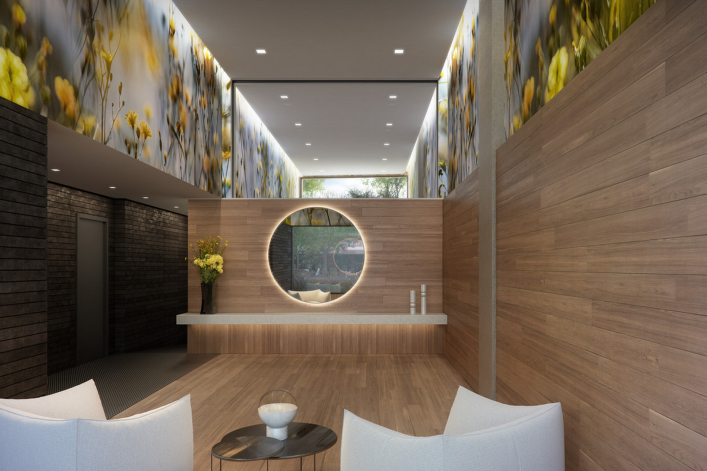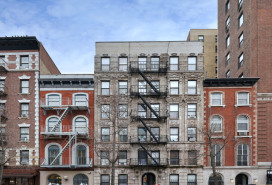Why being aggressive about passive-house construction might be cheaper than you think

There's no arguing the environmental benefits of living in an eco-friendly home, let alone how much it can save you on energy bills. But often, the biggest hurdle is the upfront cost of actually going green, or buying an apartment that's already built green. But maybe it doesn't have to be this way? The New York Post made the case yesterday that building or renovating to "passive house" standards—a hyper-efficient way that seals off a home from the elements, rendering typical heating and cooling systems unnecessary and allowing owners to shrink their environmental footprint—won't add many extra costs to your bottom line, and promises huge savings once you're actually living there. (Bonus: hermetically sealing a house against temperature fluctuations is also a highly effective way of blocking out street noise.)
Granted, top-of-the-line green construction does seem to have mostly made its way into the realm of new construction buildings, or high-priced Brooklyn townhouses. But it may not be this way for long: Consider the case of Kurt Roeloffs, who explained of his passive renovation of an UWS townhouse, "It was the most economic way, because it focused on energy reduction rather than other sustainability measures. When you have to use local materials or wood from sources that have sustainable forestry practices to earn you LEED credits, that clearly costs you money to do."
Translation: when it comes to upping a place's environmentally-friendly credentials, building with an eye to reducing its energy footprint is a whole lot cheaper than trucking in high-priced special materials. Overall, Roeloffs estimates that going passive added "between zero and two percent" to the total cost of his project, noting, "you spend more on insulation, you spend less on core heating and cooling equipment."
New York Passive House (a non-profit) puts the estimates a bit higher, per the Post, at five to 10 percent additional cost for "any ground-up project or renovation." On the flip side, utility bills will be a fraction of what they would be otherwise, and you'll be protected against fluctuations in the cost of energy.
Of course, not all of us happen to have high-end renovations in the works, or the budget to take on one. In that case, it's still worth looking into getting solar panels added to your building's roof—New York State offers hefty tax breaks. (We've got more tips on more green, budget-friendly building upgrades here.) And hey, if all else feels, you could always get on the composting bandwagon.
Related:
Solar panels on your building? New York is now offering some serious tax breaks
Save your building energy and money: here's the drill on geothermal wells
Compost 101: all the dirt New Yorkers need for "organics collection"
Energy upgrades don't have to cost your building a ton of money






















